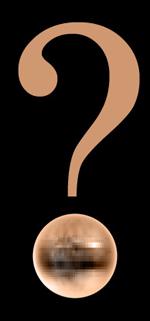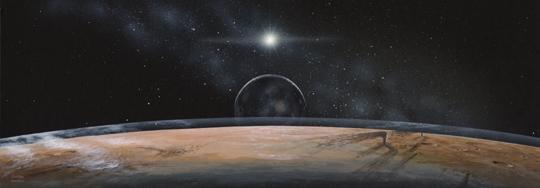Is Pluto a planet, or not?
Oh, this question. I see people getting passionate about it, which honestly I think is great. But I think they’re asking the wrong thing. There exists a somewhat better question: What’s the definition of “planet”? It’s harder to answer than you think.
Sometimes, though, how you tackle it is important, too. So that’s why I like this video of kids rapping about Pluto’s dodgy planetary status.
Clever! I love that these kids did this, and I like how they went about it. I agree with a lot of it, and disagree with some, too.
The point they make about asteroids is on the money, and one I’ve made myself many times. When Ceres was discovered in 1801 (on Jan. 1, the first day of the new century!) it seemed like we had a new planet. But then another was found, and another…and it became clear they weren’t planets in the sense of the ones already known (at that time, seven, out to Uranus).

Eliot Young/SwRI/NASA
Pluto is a good analogy to that. At first we thought it was a planet like the other eight, but it’s pretty different—smaller than our Moon, icy, and on a weird tilted and elliptical orbit. Still, Jupiter and Mercury are both planets, right? And they’re as different as they can be.
Then the International Astronomical Union came in and tried to make up rules for what a planet is. In my opinion, they failed. The last criterion—that a planet cleans up debris in its orbit—is ill-conceived. If Earth were out at Pluto’s distance, it would probably fail planethood status, and it strikes me as silly that an object can be a planet at one distance from the Sun, but not one if it’s farther out.
Mind you, above I said that asking what defines a planet is a better question, but it’s still not the best. The real question is, can even we define what a planet is?
I say no. The word “planet” isn’t something we can define (other than “I know one when I see it”, which is only asking for more trouble). It’s a concept. Mike Brown, who discovered the object Eris that started this whole modern debate, likens this to trying to define a continent. We don’t have a definition for one, because it’s not a hard and discrete thing. It’s a concept, and it’s pointless to argue over whether say, Greenland is a continent. Instead, it’s a way of quickly categorizing an idea, but it allows some freedom of mind to analyze it. When you think “continent”, you think “big land mass”, and that’s a great place to start thinking, but not where you want to stop.
When you think “planet”, you think “big round ball of stuff orbiting the Sun”, and that’s good enough for me. You can argue over Pluto all you want, but the whole time you do Pluto is sitting out there, a great big (or dinky little, depending on your starting point) world just waiting for us to explore and understand it.
That’s good enough for me too. Those objects don’t care what we call them. The important thing is that we go and take a look at them.
